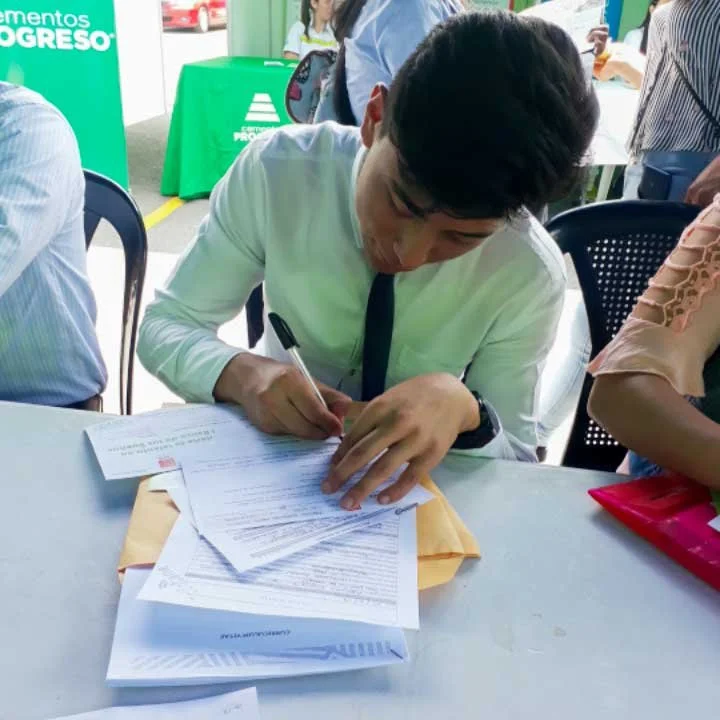
Our impact
Our belief is that everyone, no matter their background, has the ability to be in control of their own destiny. And we give the community of Jocotenango the ability to do just that.
Our admissions process ensures that those accepted would not have had access to an education without us. We ensure that students are fed, clothed, have safe water to drink and any medical and mental health issues identified. Our students have the best chance of thriving from the education they receive.
We follow the Guatemalan curriculum and along with academic tuition we focus on well being, health and entrepreneurial skills. Students leave us with a wide range of abilities that suit their potential and aspirations.
Supporting Education
In 2024, the School of Hope had 406 students enrolled, from Kindergarten through to 9th Grade - with a grade pass rate of 93%. We supported a total of 88 high school and 70 university students, including via scholarships and career guidance.
Ultimately our aim is to build our own high school, ideally on a plot of land near to the current school, to the benefit of the whole community. We aim high, despite the obstacles in our way.
Careers
Our effect on Jocotenango is wide ranging. Over 20 years, hundreds of our alumni are now working in stable jobs which allow small businesses to open and thrive.
The school provides career advice, fairs and workshops, and partnerships with local businesses to help students succeed after graduation.
Community
The School of Hope is not just a place of learning, it’s a community. Our parents are fundamental to its success. They participate in school council, parent conferences, yearly graduation ceremonies. We also offer many social support workshops such as parenting skills, minimizing gang involvement, health and well being initiatives such as vaccinations.
-

Partnerships
We partner with many local organisations, often via links with staff. These include WINGS, who run reproductive health workshops, and REKKO 8, who provide specialized medical services beyond the scope of our school nurse. Everything that we do at The School of Hope seeks to benefit our students, staff, and parents and contribute to the community.
-

Measuring impact
We measure, monitor and share impact both quantitatively through academic test results, dropout rates, work status post graduation, BMI statistics, heath checks, pregnancy rates and qualitatively through anecdotal evidence such as involvement in gangs, willingness to attend after-school clubs and alumni returning to volunteer with younger students.
An important part of this assessment is student satisfaction and we have a school council who are an integral part of both collecting and sharing data.
Annual Reports
Our annual report is a joy to read. It's an insight and a celebration of the difference we are making in Guatemala each and every day. Hear from our teachers and students in Guatemala and find out where the money we raise gets spent each year.
We celebrated 20 monumental years of EFTC, and while we continued to navigate the lasting impact of the pandemic, we also looked ahead with renewed hope.
A long and complex road back to normalcy featuring one glorious success: The School of Hope reopened after two long years.
A challenging and uplifting year. As Sara Miller comments in her introduction, “the year was a marathon where the terrain kept changing”.
A tough year. Read how our students were affected by the pandemic and how we battled to continue our support remotely.








